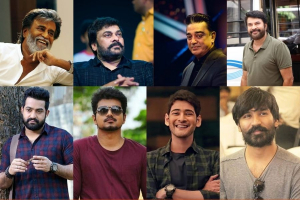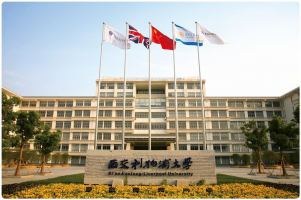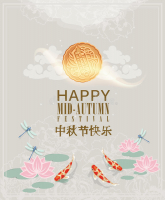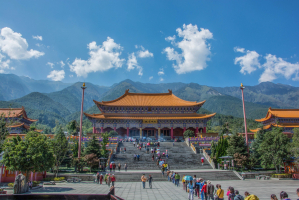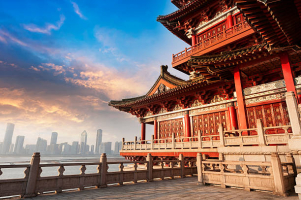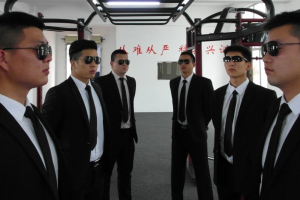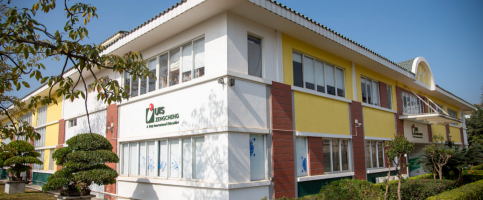Top 12 Best Famous Actors In China
In the cinema as on TV screen, China has always been brimming with talented actors. Chinese actors exude style, charm, and gift. And with every single film or ... read more...drama, they win us over a little bit more. In this mega-post, Toplist give you on the 12 most Famous actors in China whose handsome appearances and stirring performances have melted hearts and resonated across oceans.
-
First on the list of the best famous actors in China is Jiang Wen. Jiang Wen is a titan in the Chinese cinema business, known for his nonconformist approach. Jiang Wen was born in 1963 in the industrial city of Tangshan in China's Hebei Province, the eldest son of a military family who moved to Beijing when he was ten years old. Jiang Wen began his acting career on stage and cinema in 1984, after graduating from China's top acting school, the Central Academy of Drama. Jiang Wen originally gained prominence in the 1986 film The Last Empress (M Dài Huáng Hu), in which he played Puyi, China's last emperor. He co-starred with Liu Xiaoqing, a renowned elder actress, in his second film, Hibiscus Town (Fróng Zhèn) (1986). He won the Best Actor Award at the Hundred Flowers Awards for his portrayal of a "bourgeoisie" rightist caught up in the political turbulence of China's Cultural Revolution (the Chinese equivalent of American Golden Globes).
But it was his role in legendary filmmaker Zhang Yimou's first film, Red Sorghum (Hóng Goliáng) (1987), that catapulted him to international prominence. Jiang Wen received critical and box office acclaim as the star of the film, which won the Golden Bear Award at the 1988 Berlin International Film Festival. Jiang Wen's other notable performances include the melodrama Chun Tao ( Chn Táo) (1989), the romance drama In the Heat of the Sun ( Yánggung Cànlàn de RZi) (1994), the black comedy Devils on the Doorstep ( Guzi Lái le) (2000), the art film The Sun Also Rises ( Tàiyáng Zhàocháng Shng Q) (2007), the action-crime (2014).In Hollywood, he played Baze Malbus in the Star Wars anthology film Rogue One (2016). On television, he starred in hit drama series such as A Native of Beijing in New York (Bijngrén Zài Niyu) (1993) and Heroic Legend of the Chin Dynasty (Dà Qng Fngyn) (1994). (2006). Jiang Wen had an equally successful career as a screenwriter and director, having won numerous prizes for his exceptional projects: his directorial debut gained six Golden Horse Awards in Taiwan, and he won the Grand Prix at the Cannes Film Festival. Jiang Wen is one of China's most popular and prominent actors, with multiple big prizes and collaborations with China's most skilled filmmakers. He is still revered by fans all over the world.
- Born: 5 January 1963 (age 59)Tangshan, Hebei, China
- Alma mater: Central Academy of Drama
- Occupation: Actor, screenwriter, film director
- Years active: 1986–present
- Spouse(s): Sandrine Chenivesse (m. 1997–2005)
Zhou Yun (m. 2005)
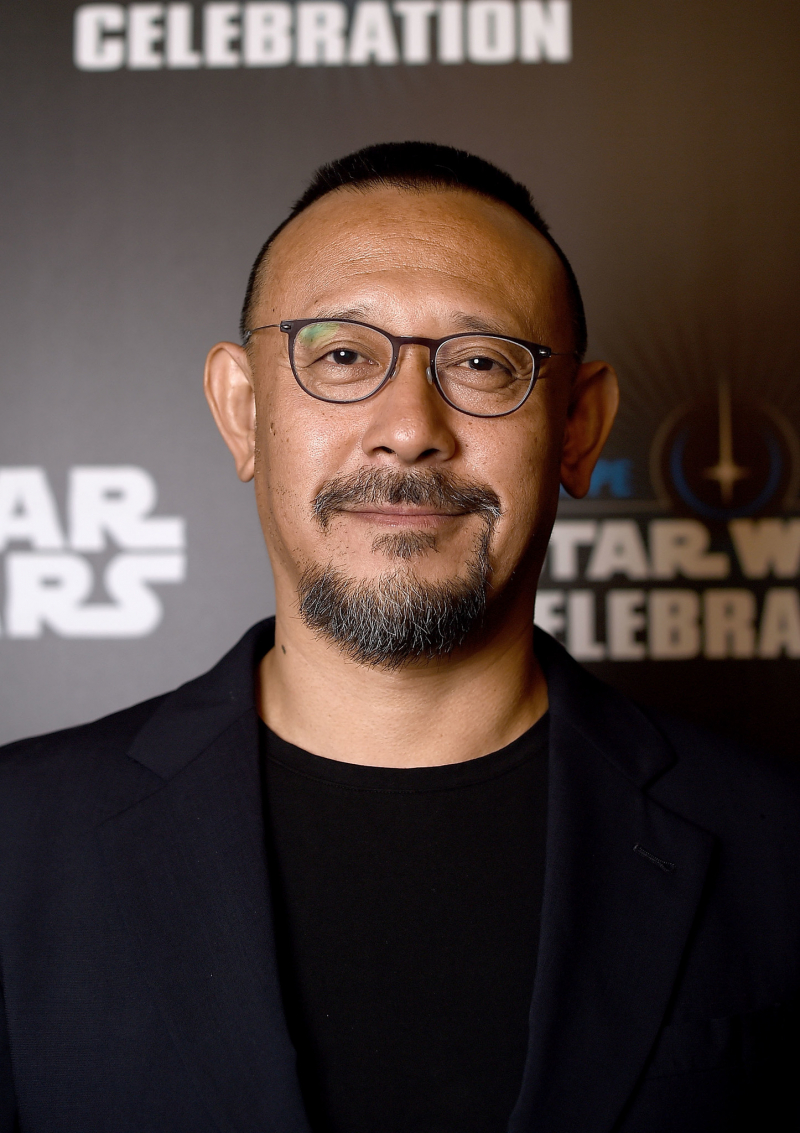
imdb.com 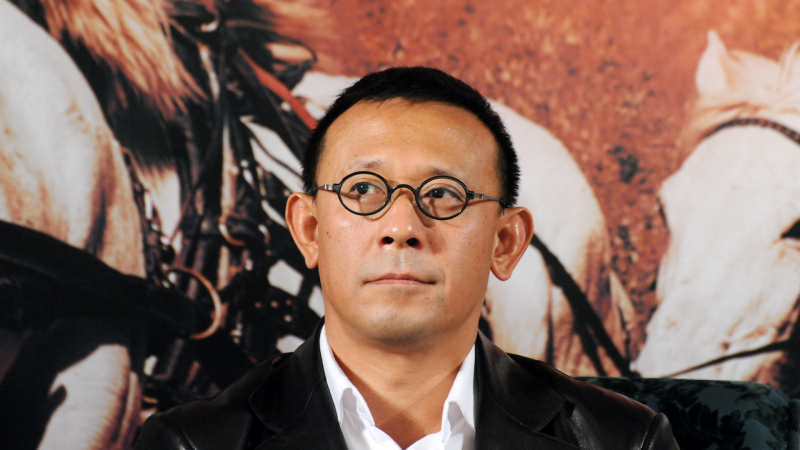
radiichina.com -
Number two among one of the best famous actors in China is Ge You. He is not only the first Asian actor to win the Best Actor prize at the Golden Rooster Awards, China's most prestigious film awards, but also the first Asian actor to win Best Actor at Cannes. Ge You was born in Beijing in 1957 to two actors who worked in the film industry. His acting career, on the other hand, did not begin smoothly. During China's Cultural Revolution, Ge You had to move to the suburbs of Beijing to farm pigs after graduating from middle school. He was finally accepted into the Art Troupe of China's National Federation of Trade Unions with the skit Feeding Pigs (Wèi Zh) at the interview after failing multiple times to get into an art school. He subsequently went on to become a theatre actor, spending the next few years on stage in little roles.
Ge You rose to prominence in 1991 after starring in the Chinese drama The Spring Festival (Gu Nián), for which he won the Hundred Flower Award for Best Supporting Actor. With the blockbuster TV series Stories From the Newsroom (Binj Bù de Gùsh) (1992), China's first western-style sitcom, he made his screen debut. Ge You got his first best actor award at an international festival in 1994 for his role in the film To Live (Huó zhe), which was based on Yu Hua's novel of the same name. He was the first Asian actor to receive the Best Actor Award at the Cannes Film Festival. This was followed by The Dream Factory (Ji Fng Y Fng) (1997), one of mainland China's first significant and successful "Hesui Pian" (Chinese New Year's end celebration films). Feng Xiaogang, the well-known Chinese "Hesui Pian" filmmaker and box-office king, couldn't get enough of Ge You! They worked together on a number of commercially successful films, including Be There or Be Square (B jiàn b sàn), Sorry Baby (méi Wán Méi Lio), Big Shot's Funeral (Dà Wàn), Cell Phone (Shuj), A World Without Thieves (Tin Xià W Zéi), If You Are the One (Fi Chéng Wù Ro), and others.
Despite his unattractive appearance, Ge You has captured the hearts of many audiences with his satirical performances and tempered comedic approach. Ge You is a giant on the Chinese cinema, having appeared in over 60 films and 10 television shows and winning countless honors.- Born: April 19, 1957 (age 65)Beijing, China
- Years active: 1985–present
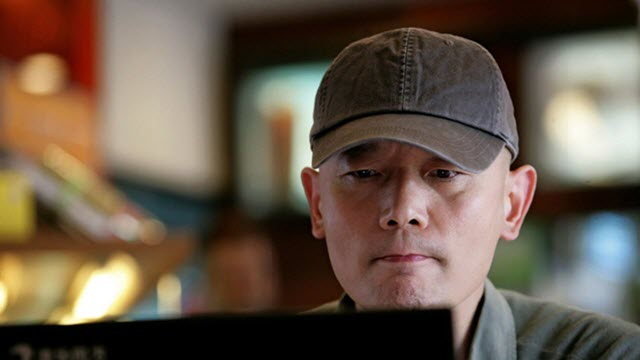
improvemandarin.com -
Li Lianjie, better known by his stage name Jet Li, is a well-known Chinese actor. Li Lianjie has gained global renown for his superb martial arts talents and depictions of noble, humble heroes. He was formerly considered the heir apparent to the original master Bruce Lee. When Li Lianjie was eight years old, he enrolled in a summer sports program at Beijing Shichahai Sports School and was randomly assigned to a wushu (martial arts) class. He then spent half of each day training and half of each day in school before starting full-time training. He toured the United States in 1974 with other young martial artists, meeting President Richard Nixon at the White House. Li Lianjie won his first national wushu championship the same year. After earning five gold for the Beijing Wushu Team at the 4th National Games of China in 1979, Li Lianjie retired from the sport owing to a knee injury. His sporting success propelled him into a career as a martial arts film star.
In 1980, Li Lianjie played Jue Yuan, a young man who studies martial arts from the monks at the historic Shaolin Temple, in Hong Kong filmmaker Zhang Xinyan's film Shaolin Temple ( Shàoln S) (the legendary birthplace of Chinese martial arts). In the Chinese-speaking world, the film was a major hit (with two sequels) and is credited with reigniting interest in Chinese martial arts. The local distributors decided Li Lianjie's name was too difficult to say when the film was released in the Philippines in 1982, so they gave him the stage name Jet Li. He followed up his triumph with appearances in a number of films that were all box office hits in the 1980s. Then, in filmmaker Tsui Hark's 1991 epic drama Once Upon a Time in China (Huáng Fihóng zh Zhuàng Zh Lng Yn), Li Lianjie played the historical martial arts expert Wong Fei-hung, who fought against injustice and foreign intrusion at the end of the Qing era. He reprised the part in three sequels, making it one of the greatest roles in Chinese cinema history. Li Lianjie was the most sought-after martial arts actor in China throughout the 1990s. When Hollywood called, the Chinese actor flew to Los Angeles and appeared in films such as Lethal Weapon 4 (1998), Romeo Must Die (2000), and The One (2001).
Following then, his career was split between China and Hollywood. While continuing to star in major Chinese blockbusters such as Hero (Yngxióng) (2002), Fearless (Hu Yuánji) (2006), The Warlords (Tóu Mng Zhuàng) (2007), and Flying Swords of Dragon Gate (Lóng Mén Fi Ji) (2011), he also appeared in Hollywood films such as Cradle 2 the Grave (2003), Unleashed (2005), The Mummy: Tomb of the Dragon Emperor (2008), (2020). Li Lianjie is one of the most well-known Chinese actors in the world, thanks to both his acting and his active role in spreading Chinese martial arts and wushu culture around the globe.- Born: Li Lianjie 26 April 1963 (age 59)Beijing, China
- Citizenship: Singapore (2009–present), United States (2003–2009), China (1963–2003)
- Occupation: Actor, martial artist, director, film producer, author
- Years active: 1982–present
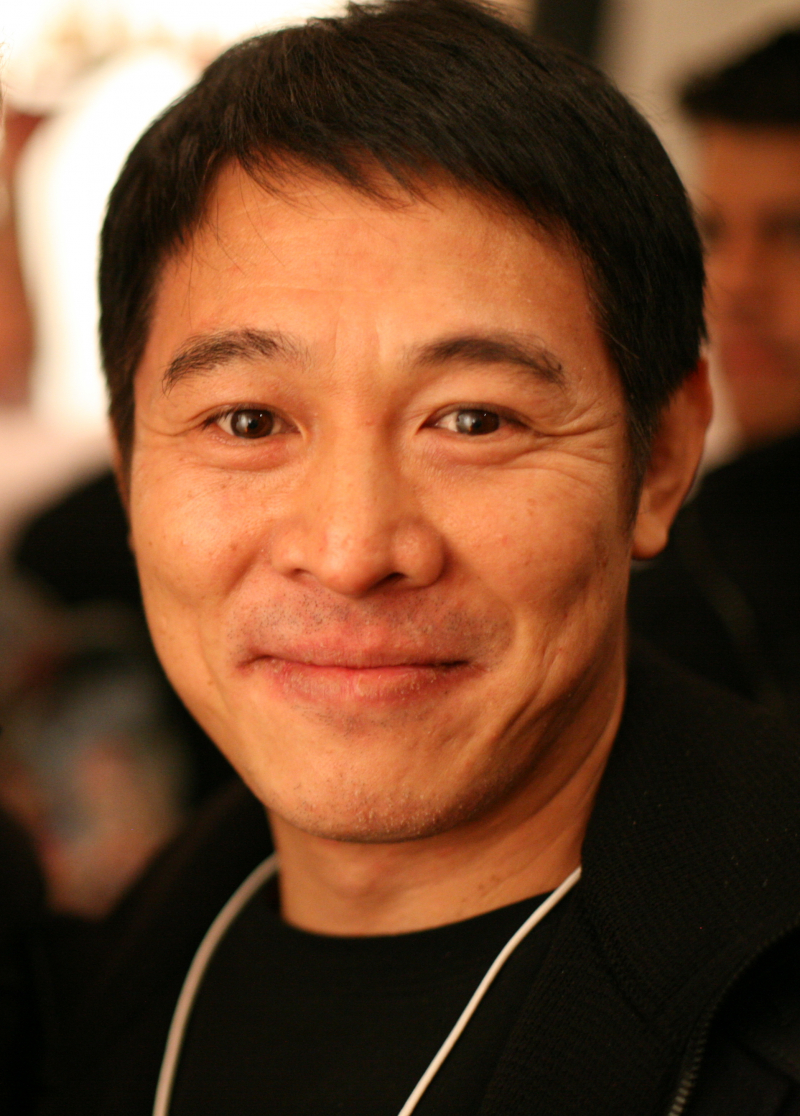
wikipedia.org 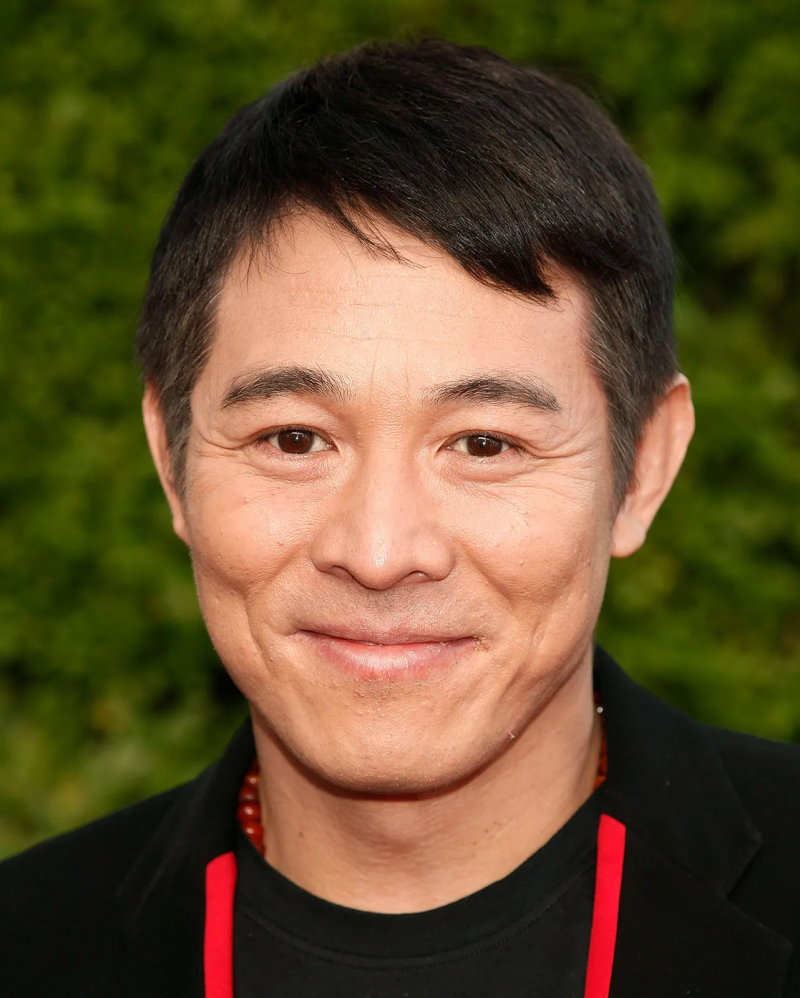
delphipages.live -
Wu Jing, one of the best famous actors in China, is a well-known Chinese actor who is most recognized for his roles as fierce action protagonists in martial arts films. He's also part of a new generation of Chinese action actors who have moved to directing. Wu Jing was born in Beijing in 1974 and began practicing wushu (Chinese martial arts) at Beijing Shichahai Sports School at the age of six. At the age of twelve, he won his first national championship. He was requested to join the Beijing Wushu Team shortly after, where he trained with Wu Bin, the same martial arts instructor who had noticed and mentored Li Lianjie (Jet Li). Yuen Woo-ping, one of Hong Kong's most prominent action choreographers and directors, traveled to Beijing in 1995 looking for a martial artist to star in his new film Tai Chi Boxer (Gngf Xiozi Chung Qng Gun), and Wu Jing was cast after Wu Bin recommended him.
The film's financial success inspired Wu Jing to star in the popular television series The Tai Chi Master (Tàij Zngsh) as the eponymous character, the legendary Tai Chi Master (Yáng Yù Gn) (1997). Following that, he starred in a number of wuxia fantasy TV series and action films, including Legend of Dagger Li (Xio L Fi Do) (1999), SPL: Sha Po Lang (Sh P Láng) (2005), and Invisible Target (Nán Ér Bn Sè) (2007), achieving more recognition in the Chinese-speaking world. When Wu Jing co-wrote, directed, and starred in Wolf Warrior (Zhàn Láng) in 2015, he became a bonafide star. The patriotic plot, special effects, action sequences, and performances of the cast were all acclaimed for the military action picture. Then came Wolf Warrior 2 (2 Zhàn Láng r) (2017), which went on to become a hit. It broke the record for the highest-grossing picture in China at the time, making $854 million!
In 2019, Wu Jing starred in The Wandering Earth ( LiLàng Dqi), a mega-hit based on a novella by Hugo Award winner Liu Cixin. When funding stopped up during production, he put up $8.5 million of his own money to finish the picture. The film grossed $700 million globally, making it China's fifth highest-grossing non-English film. Wu Jing, dubbed China's reigning box office king, is undoubtedly one of China's most popular and successful performers.- Born: 3 April 1974 (age 48)Beijing, China
- Other names: Jing WuJacky Wu
- Alma mater: Beijing Sport University
- Occupation: Actor, director, martial artist
- Years active: 1995–present
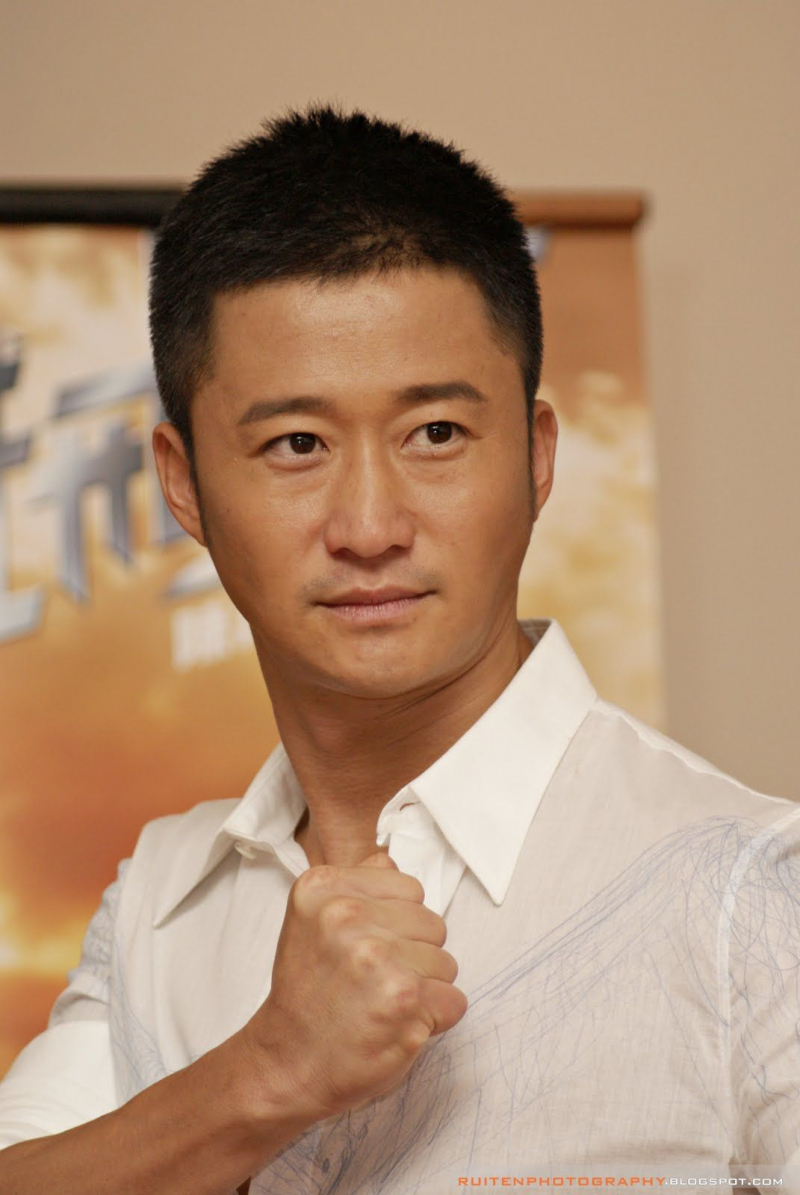
pinterest.com 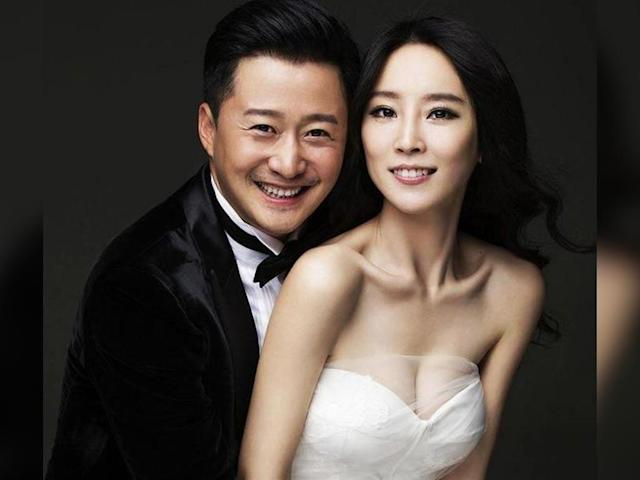
ph.news.yahoo.com -
When Chen Daoming's name is spoken, some of China's most famous characters come to mind: Puyi, Kangxi, and Liu Bang. Chen Daoming is one of China's most well-known and respected actors. He is recognized as "the Emperor of Chinese TV series" for his portrayals of several dynasties' emperors and monarchs. Let's take a look back at the extraordinary life story of this great actor.
In 1995, Chen Daoming was born in Tianjin. During his middle school years, he acquired a talent for acting. He tried his luck at the Tianjin People's Art Theater, where he studied acting and performed on stage and television on a regular basis. However, the aspiring actor remained relatively unknown until he was 33 years old. He was cast as Puyi, China's last emperor, in the period drama The Last Dynasty ( M Dài Huángd) in 1984. The series, which broadcast on China Central Television's Channel One four years later, was well-received and helped Chen Daoming gain national recognition.
Chen Daoming has starred in a variety of television programs and films since then, including Fortress Besieged (Wéi Chéng) (1990), My 1919 (1919 W de Yjiyji) (1999), Kangxi Dynasty (Kngx Wángcháo) (2001), Hero (Yngxióng) (2002), King's War (Ch Hàn Chuánq) (2012), and Coming Home (Gulái) (2014). These performances contributed to his collection of trophies. He most recently starred in the critically acclaimed TV series Joy of Life (Qng Y Nián) (2019) and My Best Friend's Story (Li Jn Su Yuè) (2021) alongside some of China's top young actors and actresses, including Zhang Ruoyun, Liu Shishi, and Ni Ni, as well as being elected chairman of the China Film Association.- Born: 26 April 1955 (age 67)Tianjin, China
- Occupation: Actor
- Years active: 1980s-present
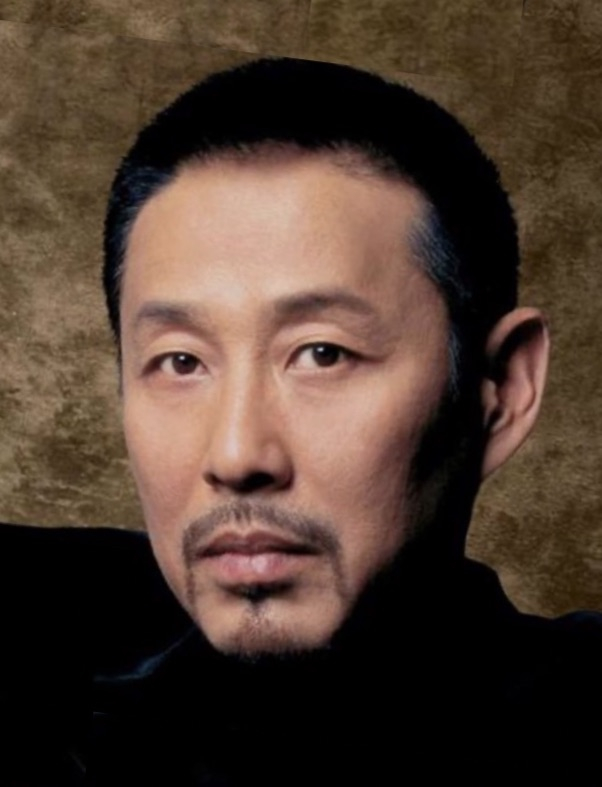
mydramalist.com 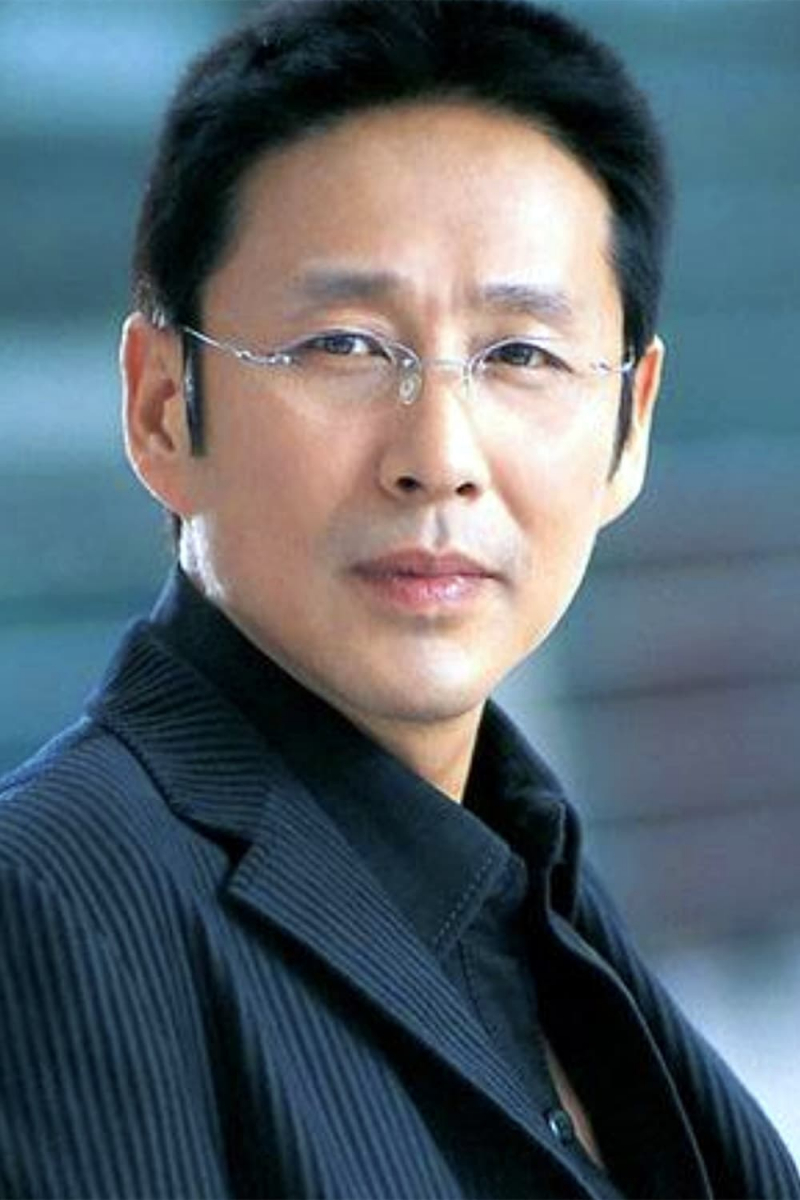
phimtor.com -
Huang Xiaoming, one of the best famous actors in China, is one of China's most well-known and successful actors, with wins and distinctions including Best Actor at the Golden Rooster Awards, Hundred Flowers Awards, and Golden Eagle Awards. Huang Xiaoming, the son of an engineer and Chinese accountant, was born in 1977 in Qingdao, Shandong Province. He was cast as a child actor in a drama by a film producer when he was seven years old, but he was later dropped due to his quiet and introverted attitude. Huang Xiaoming, undeterred by his dreams, auditioned for Beijing Film Academy in 1996 and was accepted the following year. In 1998, he made his television debut as the lead in the drama series Love is Not a Game (iqng Bsh Yóux).
In 2001, Huang Xiaoming made his debut in the three-season period drama series The Prince of Han Dynasty (Dà Hàn Tin Z), in which he played Emperor Wu of Han. He went on to star in more successful TV dramas including Merry Wanderer Tang Bohu (Fngli Shàonián Táng Bó H) (2003) and The Return of the Condor Heroes (Shén Dio Xiá L) (2006), establishing himself as a household figure in China. Huang Xiaoming's brilliance quickly drew the attention of Chinese film legend Feng Xiaogang, who cast him in the epic film The Banquet (Yè Yàn) alongside Zhang Ziyi, Ge You, and Zhou Xun. This partnership launched his illustrious career on the big screen, and he went on to collaborate with great names in Chinese cinema such as Chen Kaige, Peter Chan, and Wong Jing.
- Born: 13 November 1977 (age 44), Qingdao, Shandong, China
- Nationality: Chinese
- Occupation: Actor, singer, model
- Years active: 1998–present

jingdaily.com 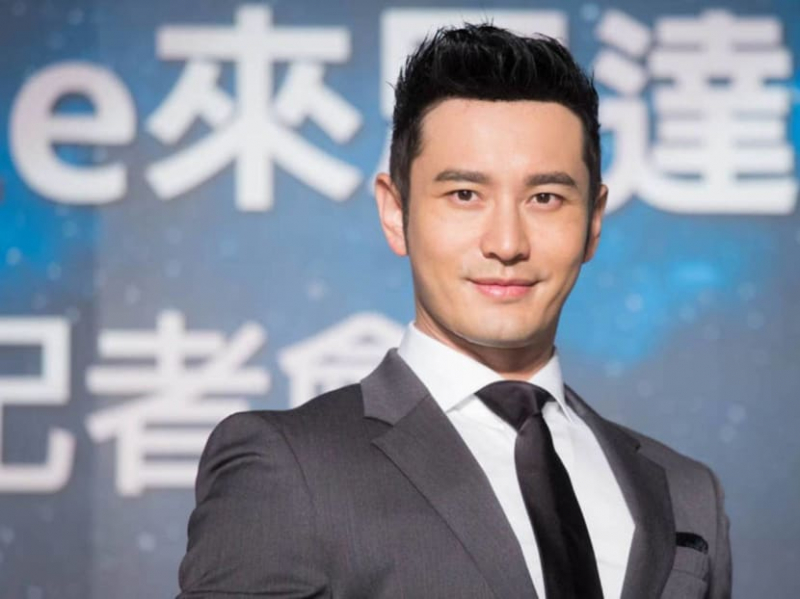
todayonline.com -
Chen Kun, who was born in Chongqing in 1976, worked as a typist, a bartender, a nightclub solo singer, and later the China Oriental Song and Dance Ensemble (now China National Song and Dance Ensemble) before getting accepted into the elite Beijing Film Academy in 1996. He was cast in Love Story in Shanghai during his senior year of college. Zhao Baogang directed the historical television drama series Xiàng Wù Xiàng Y Yu Xiàng Fng. Chen Kun, who played Chen Zikun in the film, gave an outstanding performance and quickly came to stardom. He had a successful decade in the 2000s, starring alongside top Chinese actors such as Zhou Xun, Liu Ye, Li Bingbing, and Zhao Wei in popular TV dramas and films such as Balzac and the Little Chinese Seamstress ( Brzhkè Hé Xio Cáiféng) (2002), The Story of a Noble Family ( Jn Fn Sh Ji) (2003), The Knot ( Yn Shu (2008).
He was nominated for and won some of China's most prestigious prizes, including the Huabiao Awards and the Hundred Flowers Awards for Best Actor. Chen Kun's wax figure debuted at Madame Tussauds in Shanghai in 2012, honoring his illustrious career, which shows no signs of slowing down. Chen Kun is a well-known singer and a talented writer who has recorded three albums and written several successful novels since 2001. Chen Kun is China's first and only actor to make the Writers Rich List. It's not easy to accomplish- Born: February 4, 1976 (age 46), Chongqing, China
- Alma mater: Beijing Film Academy
- Occupation: Actor, Singer, Producer
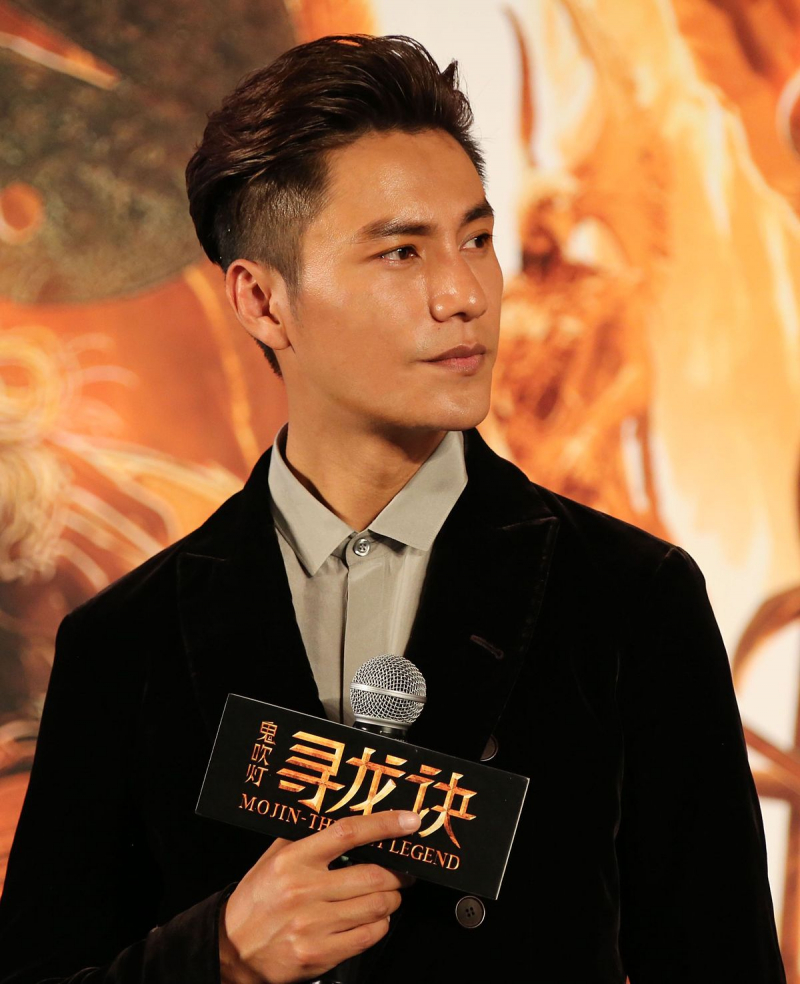
wikipedia.org 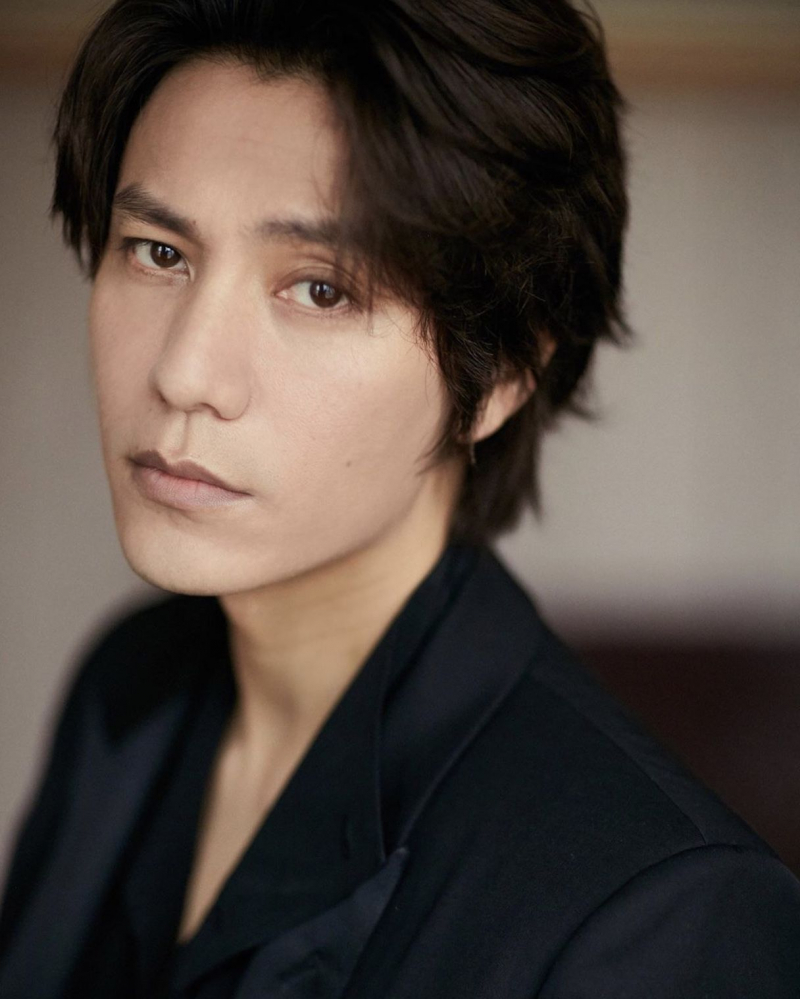
pinterest.com -
Liu Ye, one of the best famous actors in China, is widely considered as one of China's most outstanding performers, having won his first Golden Horse Award at the age of 23. Rather than depending on his nice looks to become a teen idol, Liu Ye has chosen the arduous path of constantly testing himself on film by taking on difficult roles. From honest, basic, and down-to-earth "farmer-like" roles to weak and gloomy personas to tough and Casanova characters, Liu Ye has proven his extraordinary acting skills to not only the audience but also well-known foreign directors. Liu Ye, who was born in Changchun, Jilin Province, in 1978, grew up surrounded by the arts: his father worked as a stage lighting technician, while his mother worked at a film production firm.
Liu Ye's acting abilities were immediately apparent in his first film, Postman in the Mountains (Nà Shn Nà Rén Nà Gu) (1999). He acted in the film while still a student at Beijing's Central Academy of Drama, and was nominated for a Golden Rooster Award for Best Supporting Actor for his portrayal of a lad from a mountain town who is about to take up his father's duties as a village postman. Liu Ye made his breakout performance in the gay-themed film Lan Yu (Lán Y) (2000), which received multiple accolades at various film festivals throughout the Chinese-speaking world, shortly after graduation. Liu Yu earned Best Actor at the Taipei Golden Horse Awards and another mention at the Hong Kong Film Awards for his courageous and brilliant performance as the eponymous character Lan Yu, a sweet, sympathetic homosexual.He won Best Actor at China's Golden Rooster Awards three years later for his work in The Foliage (Mi Rén Co) (2003). Liu Ye's versatility as an actor can be seen in his roles as a cold-blooded killer in Connected (Boch Tng Huà) (2008) and Mao Zedong (Chairman Mao) in The Founding of a Party (Jin Dng Wi Yè) (2011) and The Founding of an Army (Jin Jn Wi Yè) (2012). (2017).
- Born: March 23, 1978 (age 44), Changchun, Jilin
- Alma mater: Central Academy of Drama
- Occupation: Actor
- Years active: 1997–present
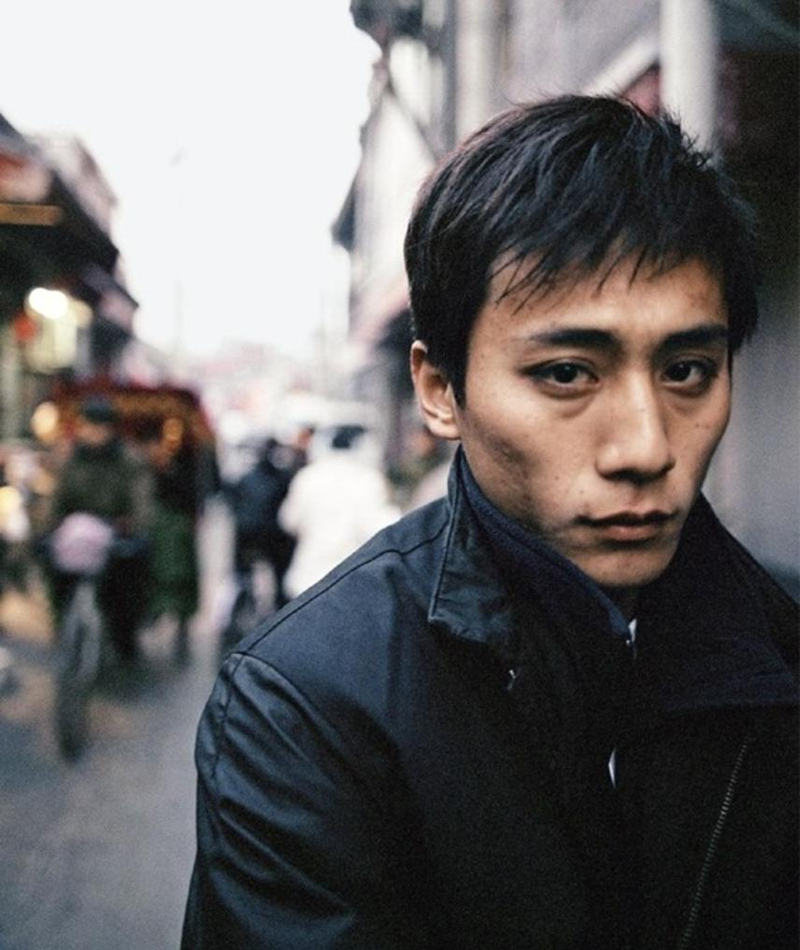
mubi.com -
Huang Bo is one of China's most well-known actors, noted for both his comedic talent and his ability to sell tickets.
Huang Bo, who was born in 1974 in Qingdao, Shandong Province, began his entertainment career in middle school. He worked as a bar singer, dancing instructor, and film dubber for years before becoming an actor. He had a band called Blue Sandstorm (Lán Sè Fng Sh). Huang Bo made his acting debut in the film Get in, and Go (, Shàng Ch, Zu ba) directed by Guan Hu in 2000. Huang Bo struggled as a young actor, with various minor roles in TV programs and little lines. In 2006, Huang Bo made his film debut as Heipi (), a foolish thief, in director Ning Hao's low-budget dark comedy Crazy Stone ( Fngkuáng de Shtou). The film was an instant hit in China, propelling Huang Bo and the rest of the ensemble to stardom.
Huang Bo has since established himself as one of China's most popular actors, starring in a string of hit films including Cow (Du Ni) (2009), for which he won the Golden Horse Award for Best Actor, Design of Death (Sh Shng) (2012), Lost in Thailand (Tài Jing) (2012), Breakup Buddies (Xn Hu Lù Fàng) (2014), and Crazy Alien (Fngkuáng de Wàixngrén) (2015). (2019). Huang Bo has had a lot of success in serious roles while being mostly typecast as a humorous performer. His first big break came when he starred in the Huabiao Award-winning film Dearest (Qn'ài de) (2014). He got critical acclaim and Best Actor accolades for his portrayal of a distraught father whose son was kidnapped.
He then went on to star in the crime film The Conformist (Bng Zh Xià) (2017). This performance has been hailed as one of Huang Bo's greatest, earning him the Best Actor award at the Shanghai International Film Festival as well as another Golden Goblet Award. Huang Bo, who is only 47 years old, still has a long and prosperous career ahead of him, but his filmography and acting abilities are already enough to distinguish him as one of China's best and most well-known performers.- Born: 26 August 1974 (age 47), Jiuquan, Gansu, China
- Education: Beijing Film Academy
- Occupation: Actor, singer
- Years active2000-present
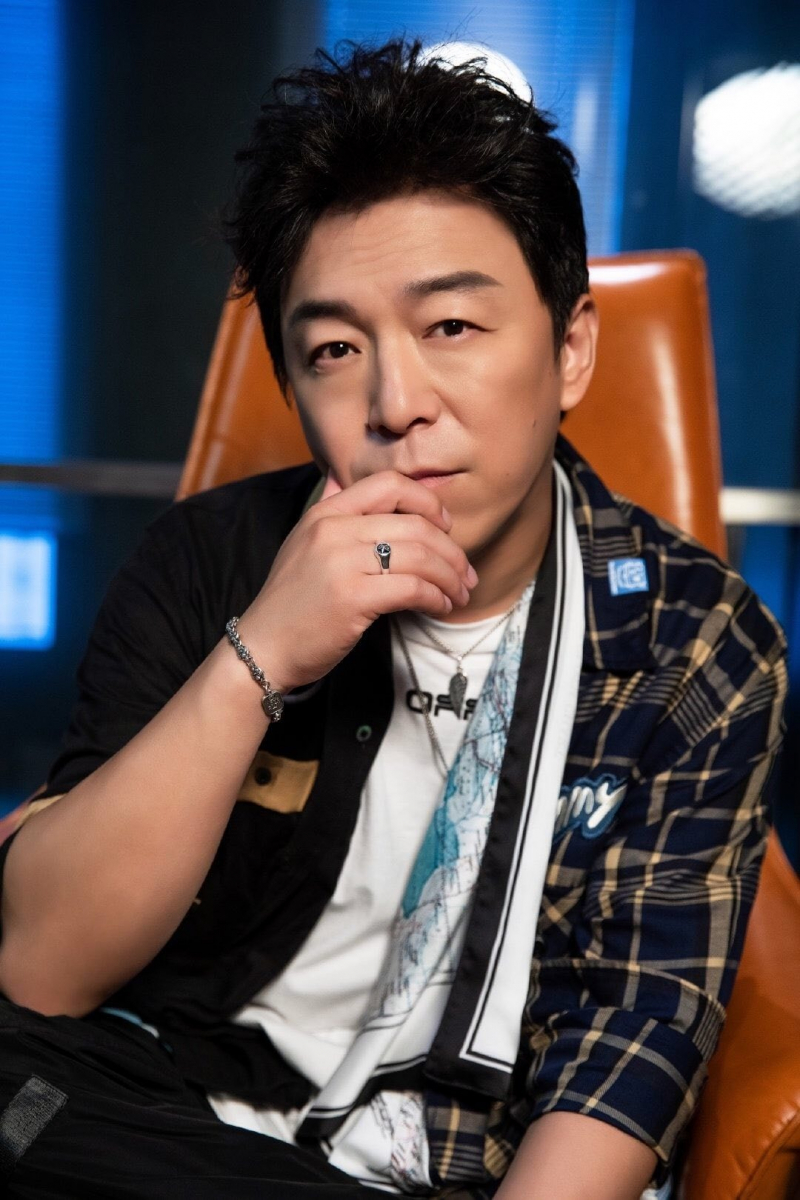
facebook.com 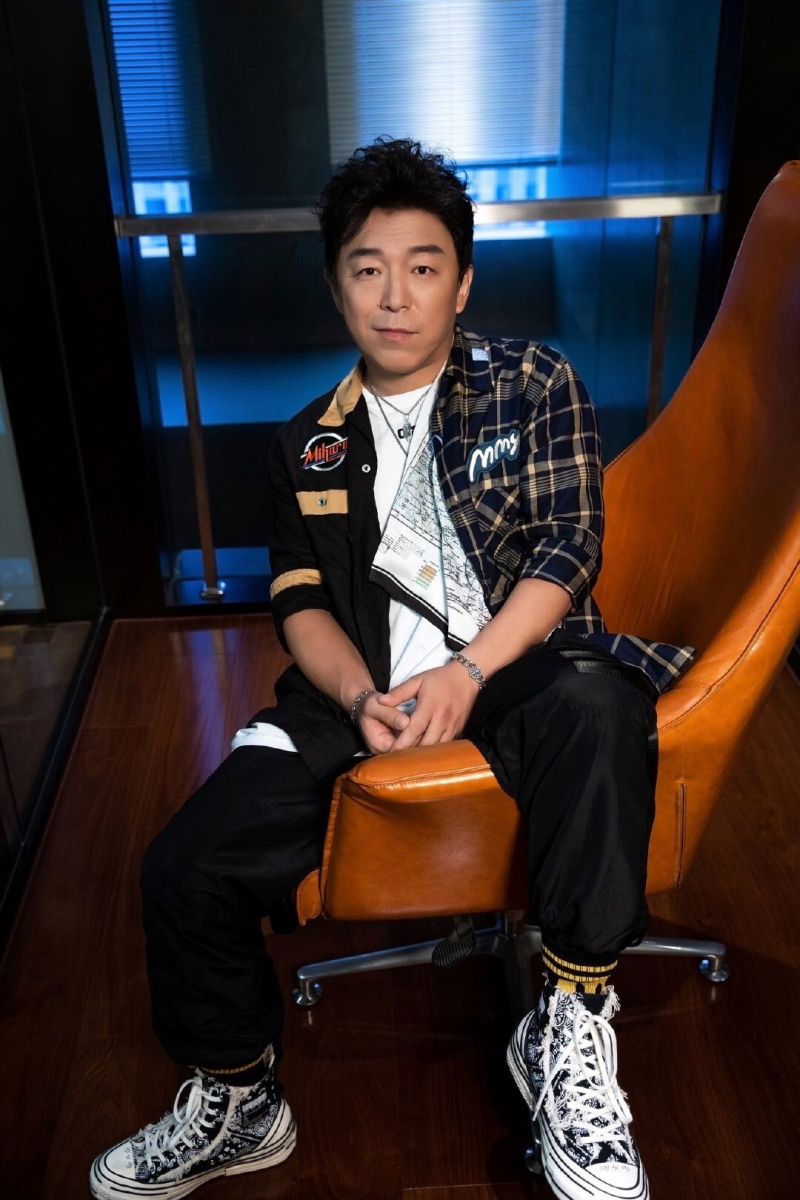
facebook.com -
You'll marvel why Wang Baoqiang's success story hasn't already been adapted for the big screen.
Wang Baoqiang was born in 1982 in Xingtai, Hebei Province, to a poor peasant family. When he was eight years old, he saw the smash hit Shaolin Temple (Shàoln S) (1982) starring Jet Li when it was shown in his village. This film motivated a young boy who had been bullied by other children to one day become a Chinese kungfu celebrity. Against his family's wishes, he began martial arts training at the legendary Shaolin Temple the same year. Wang Baoqiang had to get up at 5 a.m. in the winter and 4 a.m. in the summer to run half-marathons and climb 45-degree cliffs as part of his training from the age of 8 to 14. He imagined himself as a movie star after completing the program.
Wang Baoqiang had not appeared in a film in 6 years. He decided to travel to Beijing and use his great kungfu talents to try his luck in show business. He was 14 years old and had only 500 RMB in his wallet (about 70 US dollars). Every morning, Wang Baoqiang would line up at the Beijing Film Studio's front gate with other extras hoping to earn acting assignments. He was hired as an extra, although he was only paid 25 RMB per day (about 3 US Dollars). When his savings ran out, he was forced to work as a construction laborer.
At the age of 20, director Li Yang noticed Wang Baoqiang and cast him in the independent film Blind Shaft ( Máng Jng), giving him his first leading role (2003). The film is based on true murder and extortion events that occurred in a Chinese coal mine. Wang Baoqiang was a natural fit for the character of a young miner, winning Best New Performer at the Golden Horse Film Festival in Taiwan, as well as two Best Actor Awards in France and Thailand.
Despite the fact that the film was not a martial arts feature and Wang Baoqiang was not granted the role he desired, this fortunate break led to other opportunities in the Chinese film business for the ambitious actor. When he met legendary director Feng Xiaogang, everything changed: Wang Baoqiang would star in his 2004 new year picture A World Without Thieves (Tin Xià W Zéi), against renowned names in Chinese showbiz as Andy Lau, Rene Liu, Ge You, and Li Bingbing. For his role as Sha Gen, a naive rural youngster, he won significant critical accolades. Wang Baoqiang became famous overnight as a result of the film.
Following the tremendous success of Soldiers Sortie (Shbng TJ) (2006) and My Brother's Name is Shun Liu (W de Xiào Shùn Li) (2007), Wang Baoqiang reinforced his status by acting in two military dramas (2009). The TV series had a huge impact on many parts of Chinese people's lives, and its worth went much beyond that of a television show. Wang Baoqiang, the principal actor, became one of China's most well-known actors, appearing on the front pages of all major publications. His trademark grin appeared on countless magazine covers and other media platforms.- Born: Wang Yongqiang 29 May 1984 (age 37)Nanhe County, Xingtai, Hebei, China
- Occupation: Actor, director
- Years active: 2000–present
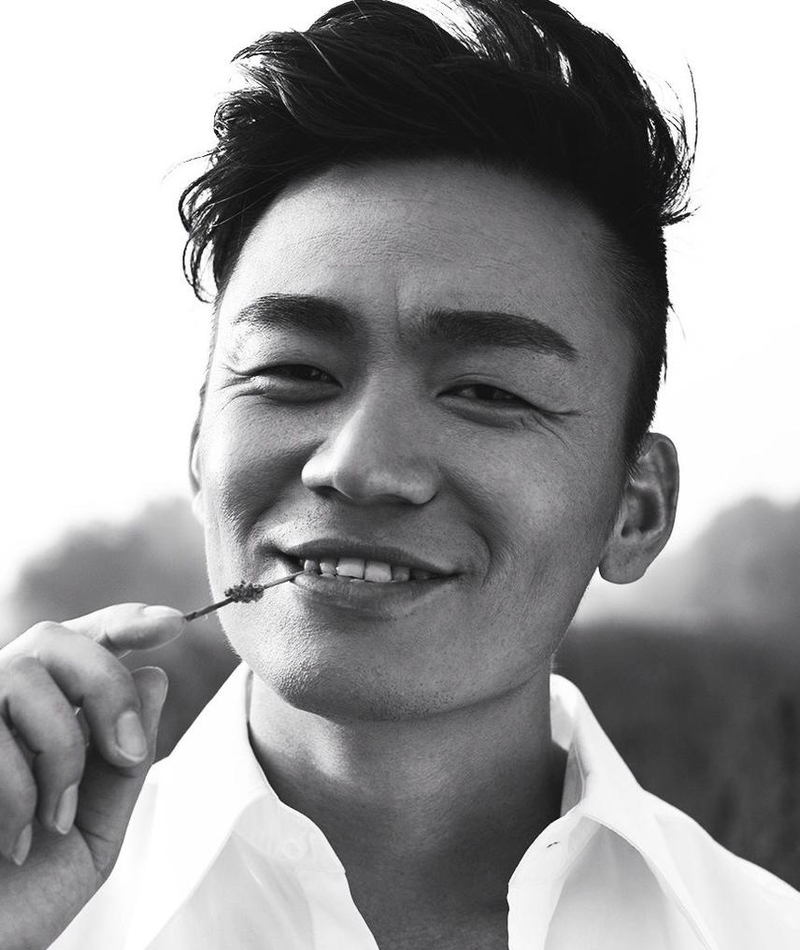
mubi.com 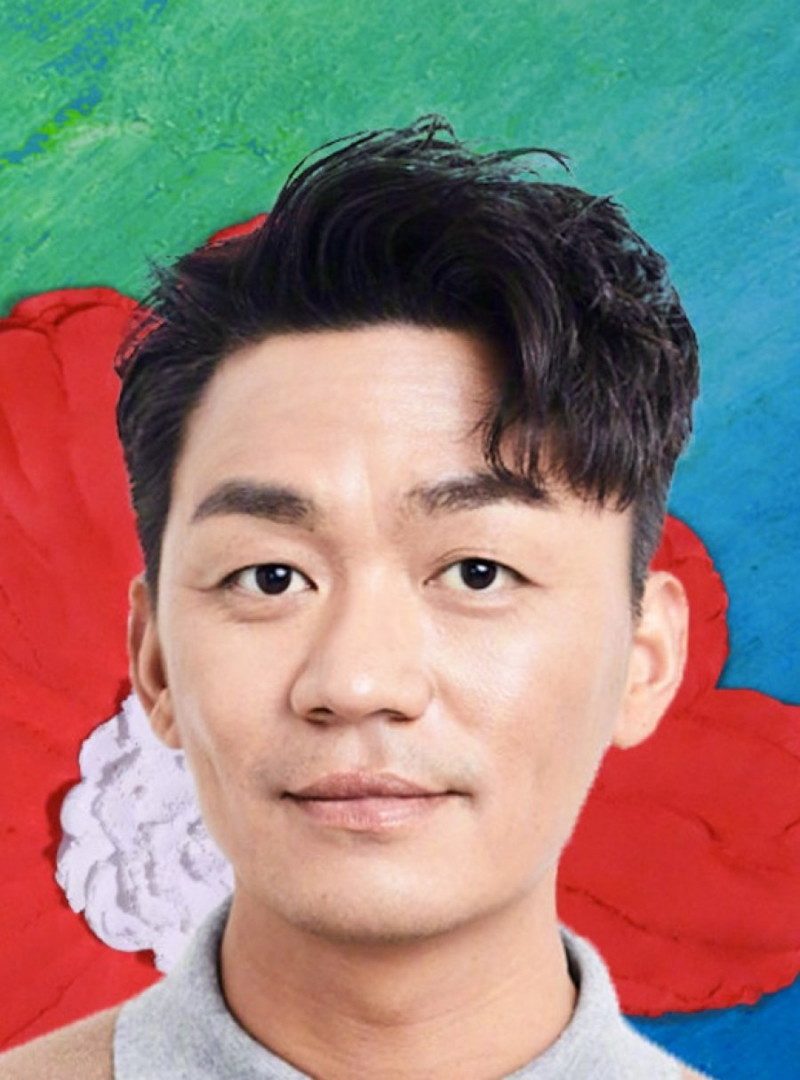
mydramalist.com -
Xu Zheng is one of China's most popular actors, filmmakers, and film producers, well known for his humorous roles. His film, television, and theatrical work encompasses a wide spectrum of genres, from humor to dark comedy to drama, and his films have achieved commercial and social success. In 1972, Xu Zheng was born in Shanghai. He began acting on stage after graduating from Shanghai Theatre Academy in 1994, and rose to national recognition in 2000 with the crazy comedy TV series Sunny Pig (Chn Gung Cànlàn Zh BJiè), in which he appeared as Zhu Bajie, a dimwitted pig who wished to become a human being. Sunny Piggy received high ratings across the country, paving the way for other popular TV and film productions like Li Wei the Magistrate (L Wèi Dng Gun) (2001), Love Through Different Times (Chunyuè Shkng de iliàn) (2002), Crazy Stone (Fngkuáng de Shtou) (2006), Call for Love (iqng Hjiào Zhuny) (2007), and Lost on Journey (Ren Zài Ji (2010).
Since 2003, Xu Zheng has been trying his hand at filmmaking and has had a lot of success. In 2012, Xu Zheng's first big film, Lost in Thailand (Tài Jing), starring himself and Wang Baoqiang (), grossed over US$200 million from over 40 million people, making it the highest-grossing domestic film in China's history at the time. The film, which was primarily shot in Thailand, resulted in such a rise in Chinese travel to the country that the Thai Prime Minister personally asked Xu Zheng to a secret meeting in Bangkok to thank him.
Another blockbuster he produced and acted in, Dying to Survive (W Bsh Yào Shén) (2018), grossed $453 million and is still one of the highest-grossing films in China today. Xu Zheng has received over ten critical honors over his acting career, including Best Actor at the Chinese American Film Festival, Changchun Film Festival, and Golden Horse Awards. Xu Zheng, one of China's most influential performers, was ranked second on Forbes' China Celebrity 100 List in 2020.- Born: 18 April 1972 (age 50), Shanghai, China
- Alma mater: Shanghai Theatre Academy
- Occupation: Actor, director, screenwriter, producer
- Years active: 1996–present
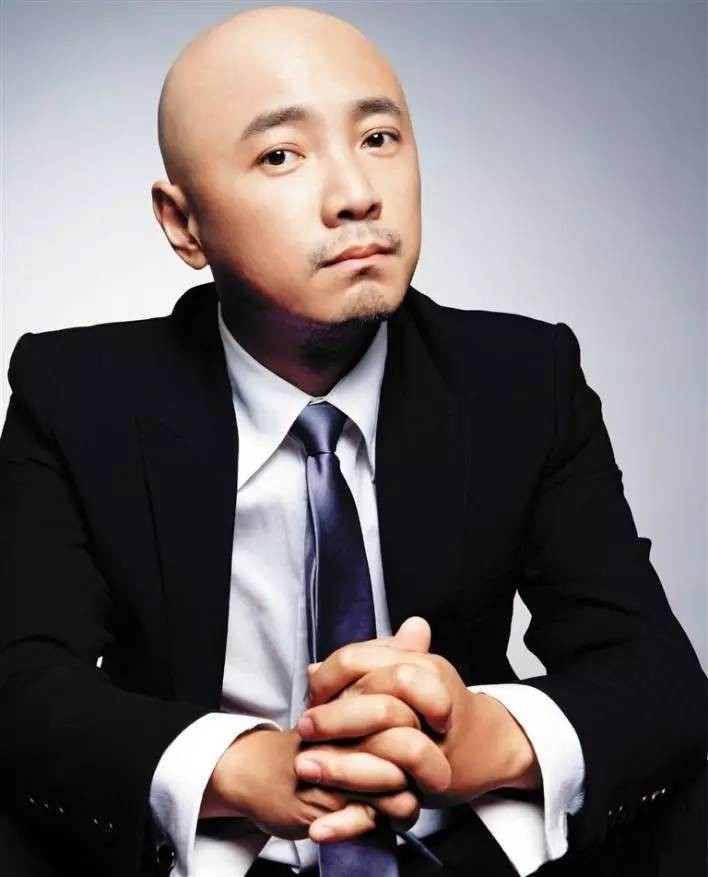
imdb.com -
Hu Ge is without a doubt one of the best and most popular Chinese actors of recent years. He is extremely attractive, and he has pushed his acting abilities by taking on roles in a variety of genres. Hu Ge is a Shanghai native who was born in 1982. He began his studies in the performing arts as a kindergarten student at a local performing arts school, and at the age of fourteen, he became a part-time TV host on Shanghai TV Education Channel. Between middle and high school, he starred in scores of TV advertisements before getting accepted into the elite Shanghai Theatre Academy. Hu Ge rose to notoriety while in college as Li Xiaoyao, the lead character in the wuxia fantasy drama Chinese Paladin (Xiàn Q Xiá Zhuàn) (2005), a TV adaptation of the action RPG The Legend of Sword and Fairy.
This series, along with several others, established Hu Ge a household name among young audiences and earned him a number of honors in the performing arts. Hu Ge's acting career was cut short in 2006 due to a serious vehicle accident. In the crash, his aide died, and he suffered major facial injuries. He returned to the set of The Legend of Condor Heroes (Shè Dio Yngxióng Zhuàn) (2008) where he had left off, portraying the iconic part of Guo Jing (after many operations and over a year of recovery). His following two shows, Chinese Paladin 3 (3 Xiàn Q Xiá Zhuàn Sn) (2009) and The Myth (Shénhuà) (2010), both became major hits after he was lauded for his portrayal.
Hu Ge went on to star in a number of successful TV shows and films in the 2010s, including Xuan-Yuan Sword: Scar of Sky (Xunyuán Jiàn zh Tin zh Hén), Life Revelations (Shnghuó Qsh Lù), and Sound of the Desert (Fng Zhng Chuánq). Hu Ge appeared in two major television dramas in 2015: The Disguiser (Wizhung Zh) and Nirvana in Fire (Lángyá Bng). He won both the Best Actor and the Most Popular Actor awards at the Golden Eagle Awards, giving him a double victory. Hu Ge is not only a fantastic actor, but he has also started singing! He debuted as a singer in 2006 and has since recorded three albums. In many of his TV shows and films, he has performed the theme song. Hu Ge has over 72 million followers on Weibo, China's social media platform, as of 2021, making him one of China's and the Chinese-speaking world's most powerful figures.- Born: 20 September 1982 (age 39), Shanghai, China
- Other names: Hugh
- Alma mater: Shanghai Theatre Academy
- Occupation: Actor, Singer, Producer
- Years active: 2004–present
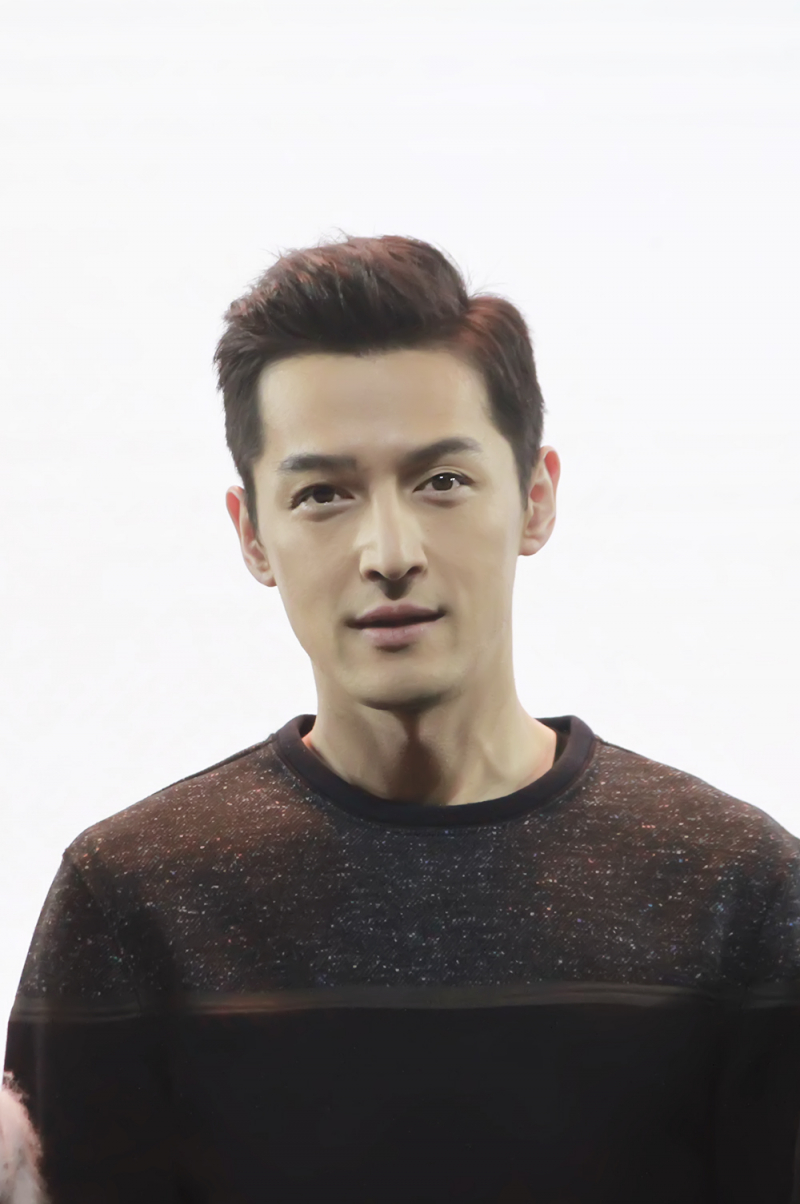
wikipedia.org 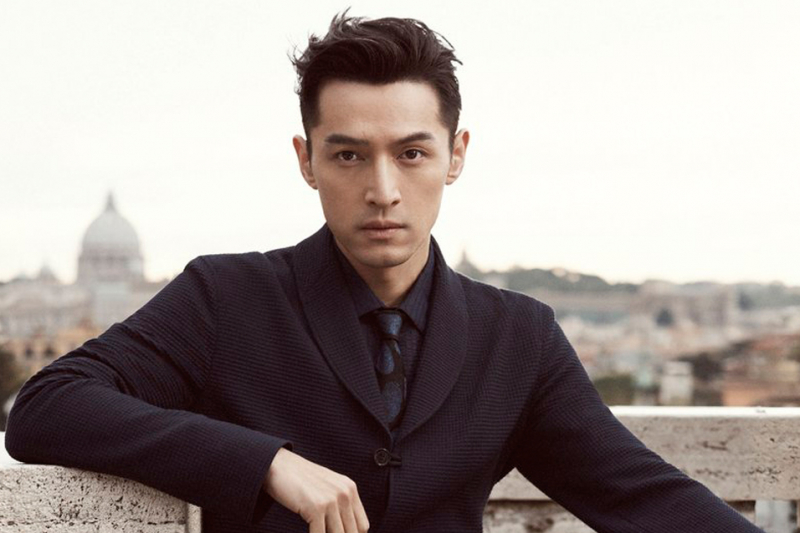
cnewsdevotee.wordpress.com














